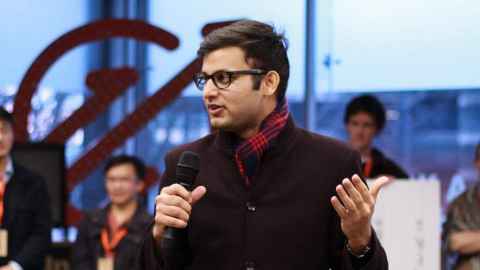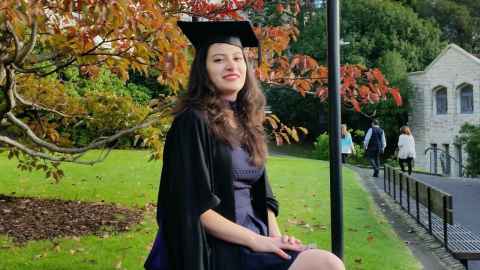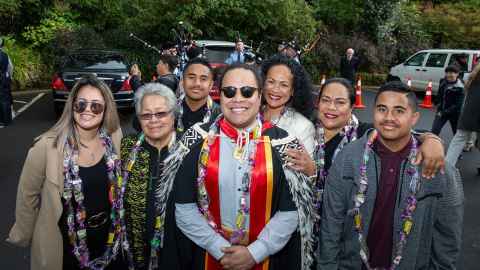How postgraduate study is supporting Engineering career aspirations
11 September 2020
PG Week is your opportunity to get familiar with postgraduate study options across the university. The Faculty of Engineering is hosting a panel discussion entitled “Rethink your career with postgraduate study” on Thursday 17 September, as well as giving the option of meeting one-on-one with our student academic advisors.

Many of our students join us for postgraduate study with a particular career focus in mind. For Chetan Anand, a recent alumnus of the Graduate School of Engineering, a Master of Engineering Studies in Construction Management was the perfect career boost after spending a few years working on smart cities project in India.
I felt that at age 24 it was a good time for me to pursue my Masters as I wasn’t too far from being in ‘study mode’ from my Bachelors and had gained a fair bit of experience in the practical world.
“The more I became engrossed in my job, the less chance that I would be able to climb out at a later stage and pursue further studies," Chetan said.
Chetan is now an Assistant Project Manager at Beca, and felt his postgraduate education really made a difference to his employability. In particular, the Project Management Case Studies course taught by Bruce Marks was one that helped build his competencies in a field he was interested in working in.
“The classroom experience of being taught by a person like Bruce is just next level. He comes with decades of practical experience across different sectors such as oil and gas and construction,” Chetan said. “The level of interaction between the students and Bruce was very high and I guess that was because he shared how projects worked in real life rather than just what they told us in textbooks.”

For Sherry, who did a research-based Masters of Engineering in Engineering Science, postgraduate study allowed her to find new avenues of exploration for her mathematics background.
The Master of Engineering provided me with the unique opportunity to learn research and technology skills to come up with innovative solutions to problems.
“This programme opened up a number of different career directions for me," Sherry said. "For example, I could become a computer network architect, computer programmer, database administrator, information security analyst, web developer and so much more! It also taught me that professional roles in IT are not only about programming but also things like collaboration as a team.”
After completing her Masters, Sherry ended up as a Web Developer at Serato, a company that makes software and instruments for DJs and other musicians. Having turned her passion for creating useful and exciting pieces of software into a career, she encourages other students to see where postgraduate study could take them.
“I strongly recommend students to pursue a Masters regardless of the field,” she says. “It not only helps you stand out more in the job market, but also opens up your vision and gives you the opportunity to know more about in-depth research and the possibility of pursuing a PhD. Information Technology is a great field if you want to explore your creative side, turn your talent into a career almost anywhere and if you enjoy learning and challenges.”

For Dr Tūmanako Ngāwhika Fa’aui, postgraduate study was a PhD that allowed him to perform research that aligned with his values and culture. It was this personal connection with the subject matter that influenced his views on what postgraduate study could be and made working towards a PhD such a valuable experience.
I didn't realise that postgraduate study can almost be anything you want it to be. I think a lot of people tend to see further study as an expansion of their undergraduate programme, but in reality, it’s actually an opportunity to study a topic that interests you.
"I really liked discovering that there is space for you to do research that you feel is important, be it addressing issues back home, or looking at a problem that affects you personally," he said.
Dr Fa’aui is now a lecturer within our Department of Civil and Environmental Engineering where he is hoping to see our faculty and students become more familiar with Te Ao Māori (The Māori World) and how it impacts us as New Zealanders. These links between Te Ao Māori and Western views of Engineering were integral to his PhD research.
“My PhD research was very much tied to working with Māori communities and traditional knowledge, and trying to see where it fits alongside Western engineering,” he said. “There’s a visible disconnect at times between the human aspects of engineering and its technical side, so it was great to engage with both, and use different methodologies to bridge the gap. At times, I was approaching my work from a more humanities-driven angle, and understanding how important that is to society – and the field of engineering – as a whole.”